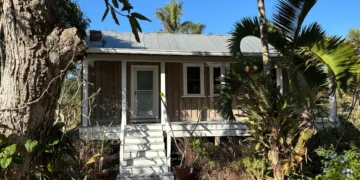The bicycle built for two is believed to be more than 150 years old. Its genesis involves passion, a pastor and an underage bride. The rest of the details are sketchy but are preserved in a poem and a song titled “Daisy Bell,” first recorded in 1892. The tale, perhaps embellished, is linked to an entrepreneur in love who rigged a humble, simply configured bicycle with an extra seat. The bike maker pedaled his pending bride across a Southern state border and found a parson who agreed to preside over the marriage vows.
Much has occurred since the development of one bicycle for multi-person use. In conjunction with the expanding interest in electric bikes with pedal assistance, cargo bikes, in various configurations, have gained popularity. With or without electric assistance and some achieving 28 mph, e-bikes are attracting cyclists who may have never considered the activity before.
The cargo bike niche is still one electric bike, but it’s expanded with front, side or rear compartments to carry groceries, children, family pets and cargo ranging from stand-up paddle boards to construction equipment. Cargo bikes mostly have two front wheels and one rear wheel.
“Florida and Southern California are the parts of the country where people buy bikes from March through November,” says Aaron Powell, founder of Bunch Bikes (bunchbike.com), a direct-to-customer business headquartered in Denton, Texas. It has shipped bikes to customers throughout Florida, including Naples and Fort Myers.
Beyond utilitarian traits and family-time benefits, electric cargo bikes give cyclists freedom from worrying much about technology or coordination restrictions. Less experienced enthusiasts or newbies concerned about balance need not fret: Front-loaded cargo bikes are steady, while a traditional two-wheel bike can easily fall with added weight. Cargo bikes’ cargo weight limits vary, with 250-350 pounds as a common maximum, and a quality electric cargo bike may have as much as a 50-mile range before the bike’s battery needs recharging.
Like traditional solo bikes and bicycles built for two (now primarily called tandems), cargo bikes have various levels of quality. Inexpensive, less carefully constructed versions can cost as little as $1,500. Quality manufacturers’ machines can approach $10,000.
“There’s nothing that the passengers have to do,” says Powell, who started his business after experiencing cargo bikes during a family vacation in Sweden. “Our bikes are primarily designed for children up through mid-elementary school age. But there are some differences between riding a bicycle, which almost everyone knows how to do, and a tricycle. Mainly, it’s on turns. You can’t lean into a turn the same way because the wheels are balanced between three wheels. You just have to take turns slowly.”
Many cycling retail stores don’t carry cargo bikes, although there are exceptions. National and international customer director sales through a manufacturer or third-party online retailer are more common.
“Most people just want something that gets them outside and offsets their second car,” says Jordan Chase of Blue Heron Bikes in Berkeley, California—a retail location that sells numerous cargo bike brands, including Tern, Urban Arrow and Yuba. “There’s a pretty strong push among families to sort of replace the second car. The bikes we sell are pedal assist.”
Ferla Family Cargo Bikes (ferlafamilybikes.com) another California-based brand, makes nearly a dozen cargo bike styles, primarily also geared toward families. In Ferla’s ambassador program, cargo bike enthusiasts from different user groups can ride one of the company’s bikes that feature large bulbous wooden front baskets. In exchange, an ambassador promotes the brand while writing about their riding experiences. Ferla ambassadors are located throughout the country, including in Miami Beach and Winter Park.
“Ferla Bikes provides people an opportunity to launch a whole company for the same price that usually only covers a month of renting a brick-and-mortar location,” says Feras Bashnak, the company’s CEO and a former mobile caterer. “My main goal was to create a miscellaneous product that could be used to sell anything that could be turned into a mobile business.”
Bashnak’s forte may be cargo bikes used as roving small businesses. Individuals can rent or buy bespoke creations as pedaling entrepreneurs who want to sell coffee to ice cream and books to flowers. But like others, he’s also in the business of catering to families together and on the move.





